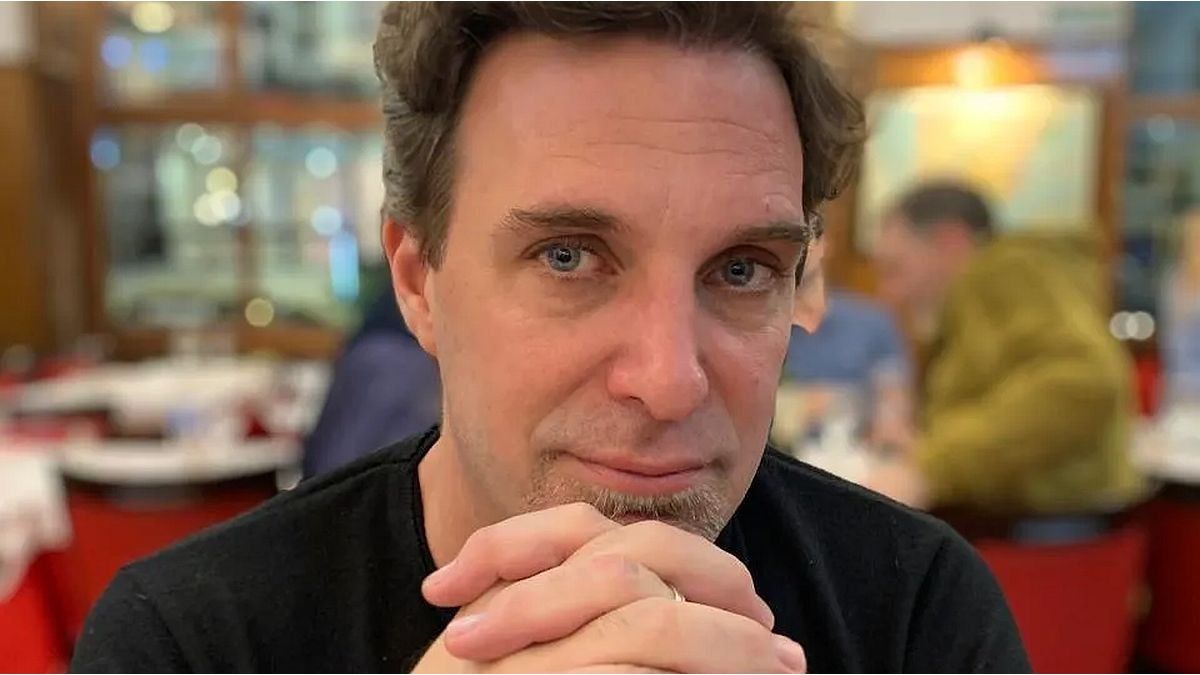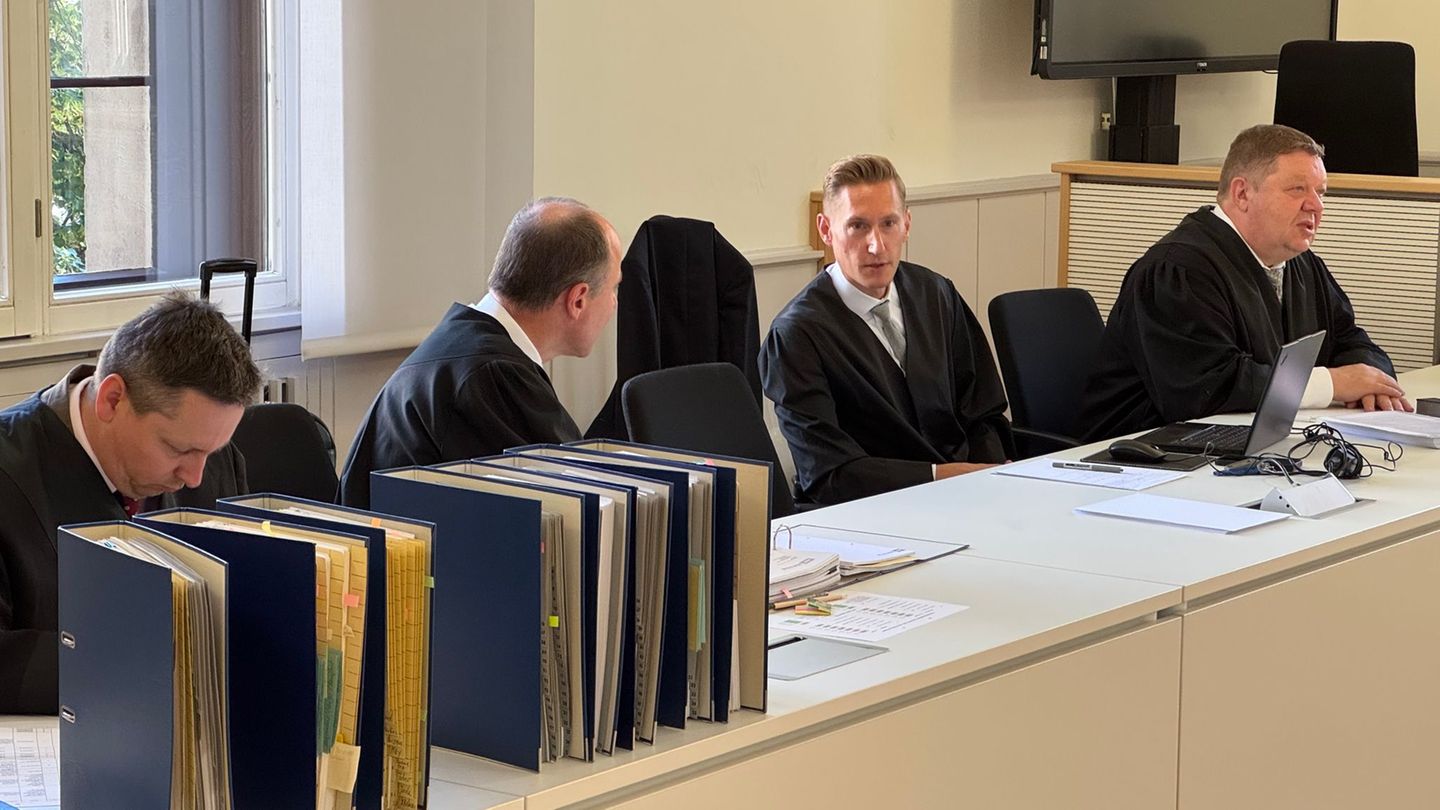“I have been making a living from my profession for years, there are times when I can plan a vacation with what I have earned and other times I can save money to pay the gas bill,” says the prolific Nelson Ruedawhich is part of four plays on the bill: second season of “Brutus” of Marcelo Zapata and Oscar Barney Finnat the Payró theater, on Mondays, at 8 p.m.; “600 grams of oblivion”, of Daniel Dalmaroni, directed by Marcelo Moncarz, Sundays at 4 p.m. at the Teatro Del Pueblo; “Beetles”, of Pacho O’Donnell, directed by Juan Manuel Correa, on Fridays at 10:30 p.m., at the Cultural Center for Cooperation and “People, places and things”, of English Duncan Macmillandirected by Julio Panno at the Teatro Sarmiento, from Wednesday to Sunday, at 8 p.m. We talked with Wheel.
Journalist: Can you find any point of contact between the four characters you are playing in theater today?
Nelson Rueda: There are four works, with four different colors of action. I feel that one must train one’s physical and emotional instrument based on what a tragedy like “Brutus” requires; or a love story within a context of a dark Argentina in the 70s, as reflected in Dalmaroni’s work; the layers of manipulation and violence contained and exposed that my character Oscar requires, in the consecrated work of Pacho O’Donnell; or in “People, Places and Things” compose empathy within a clockwork scenic device in a work that beats strongly for two hours.
-What attracted you to each of the works and what themes are addressed?
NR: In “Brutus” I am able to navigate a genre that I have never done, such as tragedy, and work with director Oscar Barney Finn. There I composed Cassius, an emblematic character in his arrival and fall from the power of Julius Caesar. “600 grams of oblivion” by Dalmaroni is a special work for me, since its author was the one who wrote the remembered “An instant without God”, which we did for two seasons with my friend Arturo Bonin. When Dalmaroni told me that he was writing a text and I saw myself in one of the main characters in it, I was not only moved by his gesture and commitment, but also by everything that came back to me from having gone through the previous piece, which he also directed. author. “Escarabajos” was proposed to me by its director Juan Manuel Correa and I received a phone call from Pacho to tell me that he would be happy if I were in the project. Also, working with Victoria Onetto who is a constant generator and motivator. We have been filling the functions for 3 months and with fabulous reviews. “People, Places and Things” has a character named Foster within a powerful scenic device. The piece is by the same author of “The Wonderful Things”, which has been presented in the Buenos Aires commercial circuit for two seasons. Working with Julio Panno is a constant learning process, each meeting was a great theater class. It just premiered and it continues to mobilize us as a company, as well as each viewer. Regarding the choice of the texts that I do in theater, I only do what challenges me as an actor, what makes me be emotionally present and what allows me to grow or train. Theater is my home, my way of life, my work tool. Therefore, I must take care of it, pamper it, defend it and always challenge it to keep it alive. Nowadays, doing theater in this context is complicated, but theater has resisted many eras. If colleagues have been able to tell their stories in times of dictatorship and even created a cycle like Open Theater that was a hinge for the return to democracy, how can we not fight it today? It would be disappointing the job and, consequently, myself.
Q: How are the shows, independent and Calle Corrientes, doing today?
NR: In this context and being part of Artei, an entity that encompasses all independent theaters, with some exceptions, the off-screen shows have suffered a significant decrease in audiences and the theaters are trying to sustain themselves so as not to fall. All this in a context where national institutes and even Proteatro en Ciudad, in the middle of the year, are still evaluating requests for help. It is a photograph of how both the theaters and the shows that are waiting for help to pay for part of the production of works are doing.
Q: Are you with one in the official, how do you see the State circuit?
NR: Working at the San Martín Theater is one of the pleasures that I wish for any actor, its people, its employees. Furthermore, what doing shows from Wednesday to Sunday gives you as an actor is fascinating. Productions are still being scheduled that are being updated to the economic context that the country is going through. I never worked at the Teatro Cervantes, but friends who are participating in its plays talk about the same thing: that today it is an achievement that it is open. That there are folders on the programmer’s table to be evaluated now, at least it gives us hope, a word that all of us who dedicate ourselves to this always have there beating.
Source: Ambito
I am an author and journalist who has worked in the entertainment industry for over a decade. I currently work as a news editor at a major news website, and my focus is on covering the latest trends in entertainment. I also write occasional pieces for other outlets, and have authored two books about the entertainment industry.




